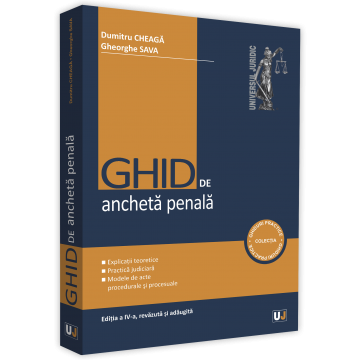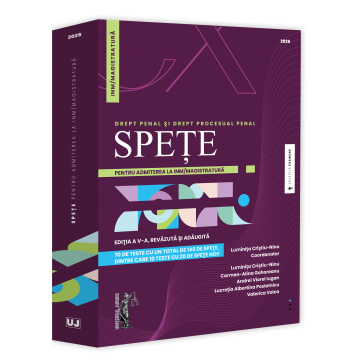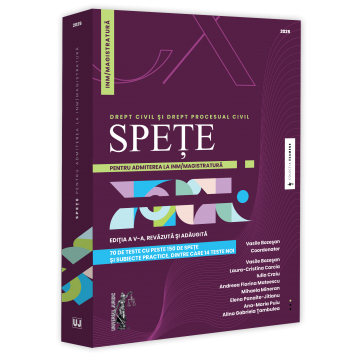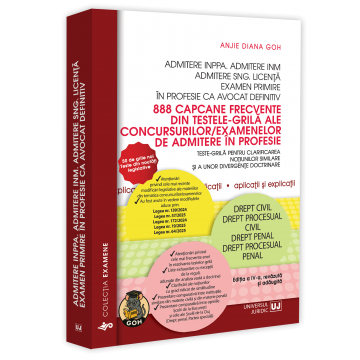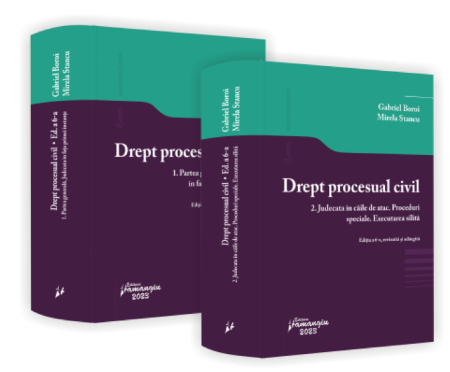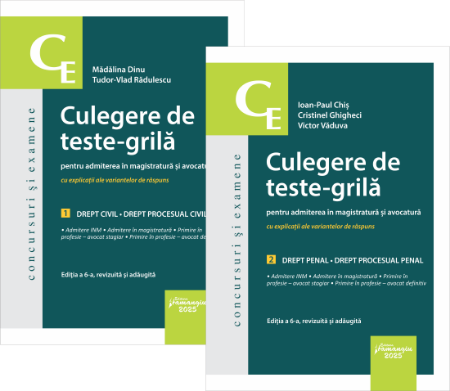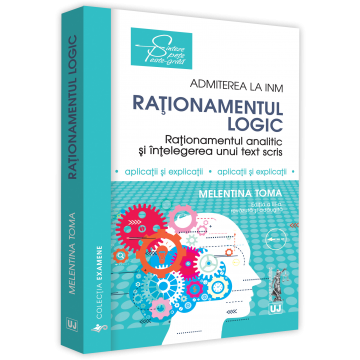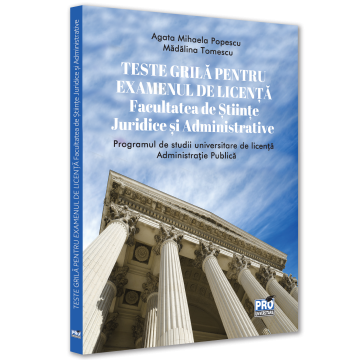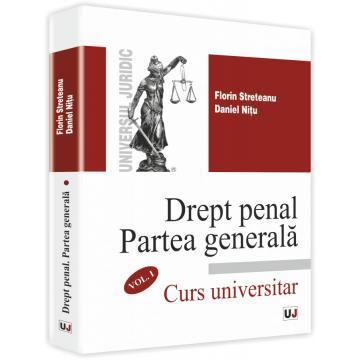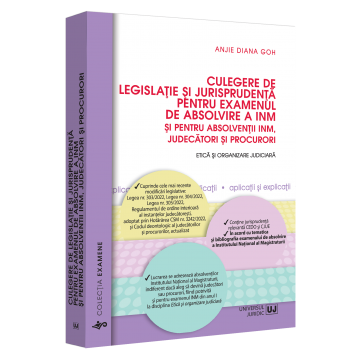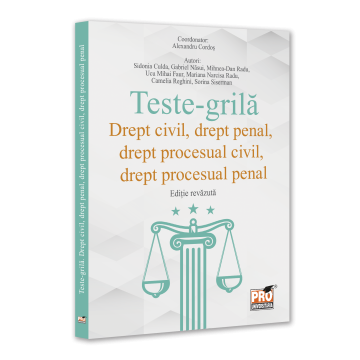Manuscript proposals: [email protected] / 0745 204 115 //// Tracking orders Individuals / Sales: 0745 200 357 / Orders Legal entities: 0721 722 783
Publisher: Editura Universitară
Author: Maria Nastase - Georgescu
ISBN: 978-973-749-557-0
Publisher year: 2009
Edition: I
Pages: 254
Product Code:
9789737495570
Do you need help?
0745 200 357
- Description
- Download (1)
- Authors
- Content
- More details
- Reviews (0)
Communication, in a very simple sense, means the transmission and reception of information (messages) between different subjects, in certain ways, through certain means. The communication can take place directly or indirectly, in a public or private setting, immediately, in a more or less long or indefinite time; in various ways or languages; by more or less complex means; between determined or less determined subjects.
A person, for example, transmits a series of information to another person through a letter. The subjects are determined, the message is transmitted in written form; indirectly, through the post office; the time of transmission of the message is not immediate; both subjects send and receive the message in a private setting. The legal dimension of this relationship consists in the fact that the secrecy of the correspondence is guaranteed by law. In some countries it is enshrined in the constitution.
The Romanian Constitution of 1991 stipulates: "The secrecy of letters, telegrams, other postal items, telephone conversations and other legal means of communication is inviolable." (Art. 28) When the disclosure of the content of the messages contained in these forms of communication takes place, directly or indirectly, through different forms, these relations fall under the incidence of the right of communication. Unlike the previous example, the crimes of insult and slander through the press occur in a public setting.
Product compliance information
A person, for example, transmits a series of information to another person through a letter. The subjects are determined, the message is transmitted in written form; indirectly, through the post office; the time of transmission of the message is not immediate; both subjects send and receive the message in a private setting. The legal dimension of this relationship consists in the fact that the secrecy of the correspondence is guaranteed by law. In some countries it is enshrined in the constitution.
The Romanian Constitution of 1991 stipulates: "The secrecy of letters, telegrams, other postal items, telephone conversations and other legal means of communication is inviolable." (Art. 28) When the disclosure of the content of the messages contained in these forms of communication takes place, directly or indirectly, through different forms, these relations fall under the incidence of the right of communication. Unlike the previous example, the crimes of insult and slander through the press occur in a public setting.
-
Communication law
Download
Maria Nastase - Georgescu
CONTENT
TITLE I. OBJECT OF THE LAW OF PUBLIC COMMUNICATION / 7
Chapter I - Introductory considerations about communication and law / 9
Chapter II - The notion of law of public communication / 14
Chapter III - Legal relations of public communication / 26
Chapter IV - Formal sources of communication in Romanian law / 31
Chapter V - The right of communication branch of public law / 44
Chapter VI - Relations of the right of communication with other branches of law / 56
TITLE II. FUNDAMENTAL HUMAN RIGHTS BASED ON PUBLIC COMMUNICATION / 59
Chapter I - Some historical considerations regarding the origin of the concept of fundamental human rights and freedoms / 61
Chapter II - The notion of fundamental rights and freedoms and their legal nature / 63
Chapter III - The notion of fundamental duties and their legal nature / 66
Chapter IV - The stages of the appearance of different categories of fundamental rights / 68
Chapter V - Historical foreshadowing of communication rights in declarations and constitutions / 71
Chapter VI - Contemporary constitutional regulations in the field of communication in a series of democratic states / 75
Chapter VII - Romanian constitutional traditions regarding the freedom of communication / 78
TITLE III. CONSTITUTIONAL STATUS AND GUARANTEES OF FUNDAMENTAL RIGHTS AND FREEDOMS OF COMMUNICATION / 81
Chapter I - The rights and obligations provided in the Romanian Constitution / 83
Chapter II - Constitutional guarantees / 89
TITLE IV. INDIVIDUAL SUBJECT OF RIGHTS AND OBLIGATIONS IN LEGAL COMMUNICATION RELATIONS / 95
Chapter I - Individual subject of freedom of expression and the right to information / 97
Chapter II - The legal regime of copyright / 127
Chapter III - Free access of the person to information of public interest / 135
Chapter IV - Protection of persons with regard to the processing of personal data / 138
Chapter V - Protection of the natural person as a consumer. / 152
Chapter VI - Protection of the individual against misleading advertising and the negative consequences of advertising / 156
Chapter VII - Protecting the dignity of the person by preventing and combating pornography / 159
TITLE V. PUBLIC AUTHORITIES SUBJECT TO RIGHTS AND OBLIGATIONS IN COMMUNICATION RELATIONS. PUBLIC RELATIONS COMPARTMENTS / 161
Chapter I - Obligations of the authorities regarding the access to the information of public interest-general considerations / 163
Chapter II - Central public authorities in Romania / 169
Chapter II - The specialized central public authorities / 184
TITLE VI. MEANS OF MASS COMMUNICATION / 201
Chapter I - General considerations. Medias "the fourth power in the state" / 203
Chapter II - Audiovisual communication / 205
Chapter III - The written press - the rights and obligations of the subjects in the legal communication relations / 223
Chapter IV - Internet - the rights and obligations of the subjects / 241
BIBLIOGRAPHY / 253
TITLE I. OBJECT OF THE LAW OF PUBLIC COMMUNICATION / 7
Chapter I - Introductory considerations about communication and law / 9
Chapter II - The notion of law of public communication / 14
Chapter III - Legal relations of public communication / 26
Chapter IV - Formal sources of communication in Romanian law / 31
Chapter V - The right of communication branch of public law / 44
Chapter VI - Relations of the right of communication with other branches of law / 56
TITLE II. FUNDAMENTAL HUMAN RIGHTS BASED ON PUBLIC COMMUNICATION / 59
Chapter I - Some historical considerations regarding the origin of the concept of fundamental human rights and freedoms / 61
Chapter II - The notion of fundamental rights and freedoms and their legal nature / 63
Chapter III - The notion of fundamental duties and their legal nature / 66
Chapter IV - The stages of the appearance of different categories of fundamental rights / 68
Chapter V - Historical foreshadowing of communication rights in declarations and constitutions / 71
Chapter VI - Contemporary constitutional regulations in the field of communication in a series of democratic states / 75
Chapter VII - Romanian constitutional traditions regarding the freedom of communication / 78
TITLE III. CONSTITUTIONAL STATUS AND GUARANTEES OF FUNDAMENTAL RIGHTS AND FREEDOMS OF COMMUNICATION / 81
Chapter I - The rights and obligations provided in the Romanian Constitution / 83
Chapter II - Constitutional guarantees / 89
TITLE IV. INDIVIDUAL SUBJECT OF RIGHTS AND OBLIGATIONS IN LEGAL COMMUNICATION RELATIONS / 95
Chapter I - Individual subject of freedom of expression and the right to information / 97
Chapter II - The legal regime of copyright / 127
Chapter III - Free access of the person to information of public interest / 135
Chapter IV - Protection of persons with regard to the processing of personal data / 138
Chapter V - Protection of the natural person as a consumer. / 152
Chapter VI - Protection of the individual against misleading advertising and the negative consequences of advertising / 156
Chapter VII - Protecting the dignity of the person by preventing and combating pornography / 159
TITLE V. PUBLIC AUTHORITIES SUBJECT TO RIGHTS AND OBLIGATIONS IN COMMUNICATION RELATIONS. PUBLIC RELATIONS COMPARTMENTS / 161
Chapter I - Obligations of the authorities regarding the access to the information of public interest-general considerations / 163
Chapter II - Central public authorities in Romania / 169
Chapter II - The specialized central public authorities / 184
TITLE VI. MEANS OF MASS COMMUNICATION / 201
Chapter I - General considerations. Medias "the fourth power in the state" / 203
Chapter II - Audiovisual communication / 205
Chapter III - The written press - the rights and obligations of the subjects in the legal communication relations / 223
Chapter IV - Internet - the rights and obligations of the subjects / 241
BIBLIOGRAPHY / 253
Communication, in a very simple sense, means the transmission and reception of information (messages) between different subjects, in certain ways, through certain means. The communication can take place directly or indirectly, in a public or private setting, immediately, in a more or less long or indefinite time; in various ways or languages; by more or less complex means; between determined or less determined subjects.
A person, for example, transmits a series of information to another person through a letter. The subjects are determined, the message is transmitted in written form; indirectly, through the post office; the time of transmission of the message is not immediate; both subjects send and receive the message in a private setting. The legal dimension of this relationship consists in the fact that the secrecy of the correspondence is guaranteed by law. In some countries it is enshrined in the constitution.
The Romanian Constitution of 1991 stipulates: "The secrecy of letters, telegrams, other postal items, telephone conversations and other legal means of communication is inviolable." (Art. 28) When the disclosure of the content of the messages contained in these forms of communication takes place, directly or indirectly, through different forms, these relations fall under the incidence of the right of communication. Unlike the previous example, the crimes of insult and slander through the press occur in a public setting.
A person, for example, transmits a series of information to another person through a letter. The subjects are determined, the message is transmitted in written form; indirectly, through the post office; the time of transmission of the message is not immediate; both subjects send and receive the message in a private setting. The legal dimension of this relationship consists in the fact that the secrecy of the correspondence is guaranteed by law. In some countries it is enshrined in the constitution.
The Romanian Constitution of 1991 stipulates: "The secrecy of letters, telegrams, other postal items, telephone conversations and other legal means of communication is inviolable." (Art. 28) When the disclosure of the content of the messages contained in these forms of communication takes place, directly or indirectly, through different forms, these relations fall under the incidence of the right of communication. Unlike the previous example, the crimes of insult and slander through the press occur in a public setting.
If you want to express your opinion about this product you can add a review.
write a review

6359.png)
![Communication law [1] Communication law [1]](https://gomagcdn.ro/domains/editurauniversitara.ro/files/product/large/dreptul-comunicrii-2662-746202.jpg)
